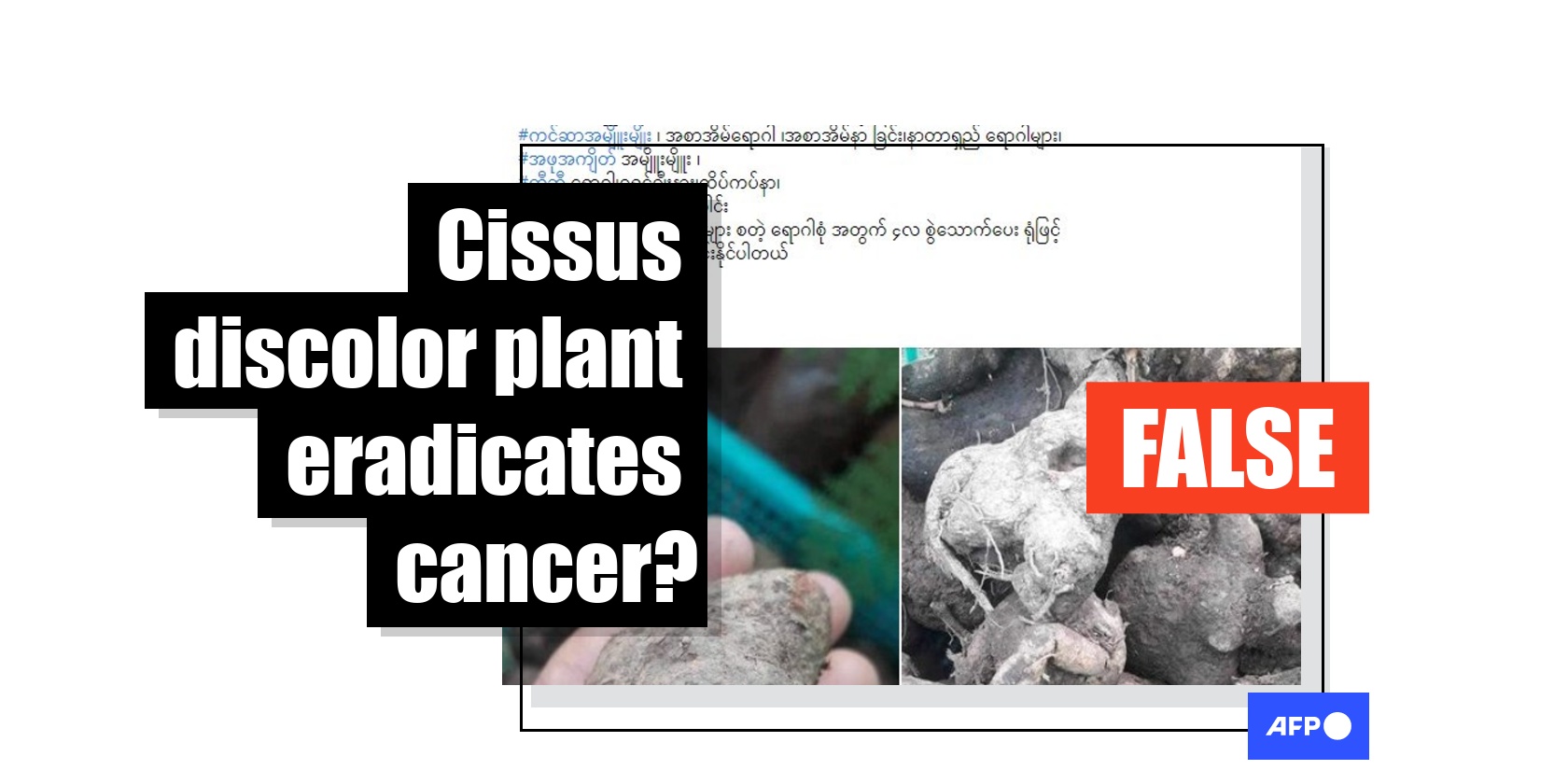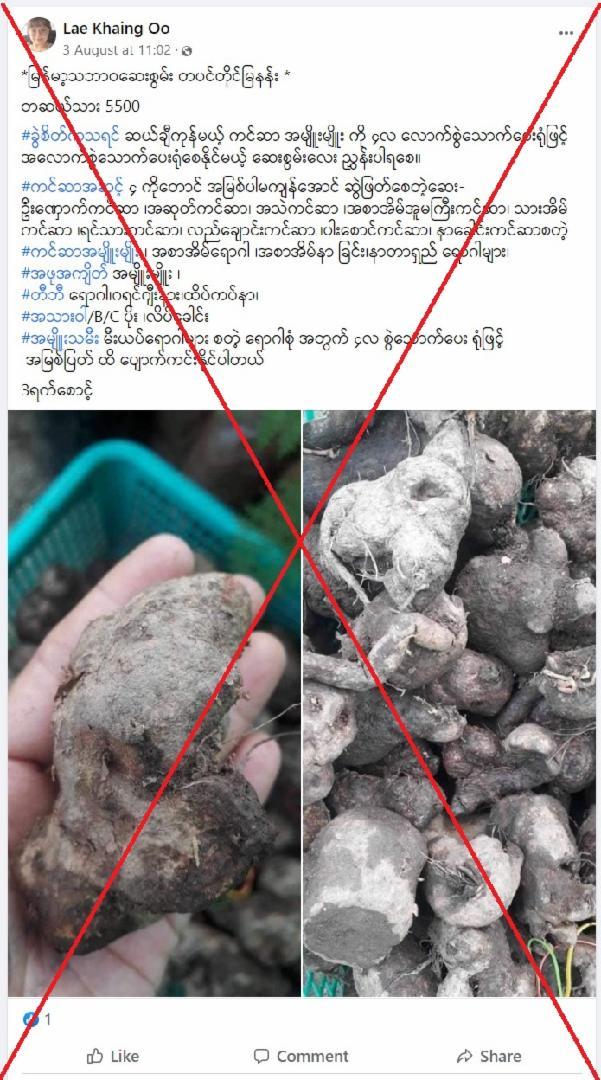
Cissus discolor plant not a proven cure for cancer: experts
- This article is more than two years old.
- Published on September 5, 2023 at 10:48
- 2 min read
- By AFP Thailand, AFP Philippines
"Tabin-daing-mya-nan! Let me suggest a medicine that can cure various types of cancer," reads a lengthy Burmese-language post shared on August 3 in a Facebook group with more than 14,000 members.
It says consuming "tabin-daing-mya-nan" -- the Burmese name for the Cissus discolor plant traditionally used across Southeast Asia for stomach problems and muscle pain -- is an alternative for expensive cancer surgery and cures many types of cancer in just four months.
"The remedy can eradicate even stage 4 cancer such as brain cancer, lung cancer, liver cancer, stomach and colon cancer, uterine cancer, breast cancer, throat cancer, mouth cancer, and nasal cancer," the post goes on to claim.
It features images that appear to show the roots of a plant although it is unclear if these are Cissus discolor.

AFP has repeatedly debunked misinformation promoting home remedies in Myanmar -- which soared in popularity after medical staff joined a civil disobedience movement in protest against the country's 2021 military coup.
Similar posts touting Cissus discolor as a cancer cure have also been shared here, here and here in other Facebook groups with tens of thousands of members.
Multiple experts told AFP these posts are false.
"Cissus discolor in any form is not medically approved for the treatment of cancer," Dr. Ann Meredith Garcia Trinidad, head of the medical oncology section at Dagupan Doctors Villaflor Memorial Hospital in the Philippines, said on September 4 (archived link).
"Limited in vitro and animal studies done in the lab have demonstrated some anti-cancer properties, but its safety and efficacy in terms of curing cancer has not yet been proven in human clinical studies," she said.
Consuming Cissus discolor is "not a recommended cancer treatment", Caroline Geraghty, a specialist cancer information nurse from Cancer Research UK, separately told AFP on August 7 (archived link).
The US Centers for Disease Control and Prevention says treatment depends on the kind of cancer, its stage and how far it has spread in the body (archived link).
"Sometimes, treatment is meant to cure the cancer. Other times, the goal is to stop the cancer from spreading further," the health agency says on its website.
"Some treatments may be given to reduce side effects of other treatments and relieve symptoms caused by the cancer or its treatment."
Common treatments include surgery where doctors cut out tissues containing cancer cells, as well as various other therapies that aim to shrink, kill or stop cancer cells from growing.
The American Cancer Society advises patients thinking of using an alternative treatment instead of standard cancer care to talk to a doctor first as it could put them "at serious risk" (archived link).
"Delays or interruptions in standard treatment can give the cancer more time to grow," the organisation says on its website.
"Be very suspicious of any treatment that says it can cure any cancer. Claims that a treatment can cure all cancers or that it can cure cancer and other difficult-to-treat diseases are sure to be false."
Copyright © AFP 2017-2026. Any commercial use of this content requires a subscription. Click here to find out more.
Is there content that you would like AFP to fact-check? Get in touch.
Contact us
